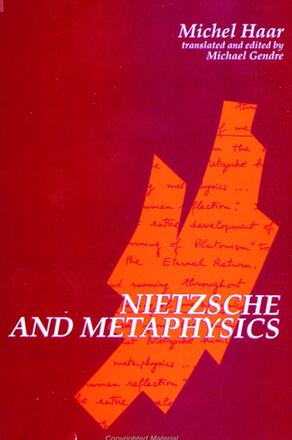
Nietzsche and Metaphysics
Alternative formats available from:
Provides an assessment of the overcoming of metaphysics urged by Nietzsche--a critical and reconstructive overcoming. He also probes Nietzsche's project of subverting subjectivity.
Description
Michel Haar assesses the overcoming of metaphysics urged by Nietzsche. He probes tensions usually acknowledged without further questioning, and he probes discrepancies. Haar points out that Nietzsche's overcoming must be conceived as a task both critical and reconstructive. Instead of indulging in the deconstructionist intertextual obsession with idiosyncratic "traces," Haar shows how Nietzsche criticizes philosophical concepts as being traceable to a process of simplification and identification thus subverting traditional categories and identities.
Haar presents Nietzsche as an aesthetic stoic. Although opposed to any doctrinal tenet, Nietzsche rekindles a Stoic return to nature in the register of a creative and aesthetic decision. Necessity is no longer a single rational force permeating all beings. Instead he conceives of the will to power as a schematization of the natural chaos and refers Dionysos to an inspiring voice: "the genius of the heart."
Rejecting the Deleuzian essay of interpretation that unleashes the simulacra of an untamed imagination, Haar points out that Nietzsche's rejection of Kant is much less extreme than imagined in Deleuze's eccentric readings. Haar also shows that the rupture with Schopenhauer came very early in Nietzsche's itinerary although he accepted the idea of a social conditioning of science. Haar shows that two Apollonian sublimities are distinguished by Nietzsche: one generating idyll, epos, and mythic language; the other a compensatory illusion on the dramatic stage destined to dismiss the horror of an endlessly swelling ground. It is this monstrosity that a creative forgetfulness is destined to replace by seeking a place for the work of art amidst tragic joy.
Michel Haar is the author of Heidegger and the Essence of Man, also published by SUNY Press. Michael Gendre is the translator and editor of Heidegger and the Project of Fundamental Ontology; Poetics, Speculation, and Judgment: The Shadow of the Work of Art from Kant to Phenomenology; and Heidegger from Metaphysics to Thought, all published by SUNY Press.